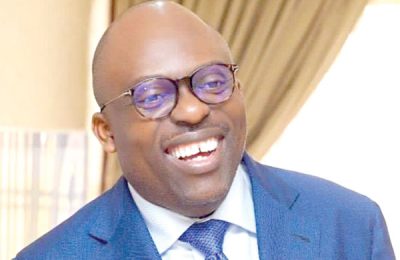

A government-driven curriculum cannot be effective in a market driven society especially at tertiary education level. The role of government in-poor curriculum development and implementation in educational institutions are in two folds. The first is in the form of government policies on education and the second is in the form of regulations.
Section 1 of Education (National Minimum Standards) and establishment of Institutions Act of 1985 provides that the responsibility for the establishment and maintenance of minimum standards in pre-primary and primary schools and similar institutions in the federation is vested in minister. By the provision of Section 4 of the same act, the responsibility for the establishment and maintenance of minimum standards in secondary schools and higher institutions in the federation shall be vested in the minister. By Section 10 of thesame act, the power to lay down minimum standards for all universities and other institutions of higher learning in the federation and the accreditation of their degrees and other academic awards is vested in the National Universities Commission, the former in consultation with the university for that purpose after obtaining prior approval through the minister from the President. The foregoing are the minimum standards which the institutions must teach their students. There is no review period in the law, nor are there provisions for the considerations for review. So, what we have in this country is a government-driven curricular and this has been so for decades.
A government-driven curriculum cannot be effective in a market-driven society, especially at the tertiary education level. Professions that want to remain competitive and efficient in the market must be allowed to figure out how to develop a curriculum that will enable them remain relevant in the market place. These professions form associations that meet periodically to deliberate on the best ways to move their professions forward. They also will have to determine core competencies and soft skill based on market realities, which their members must have, to remain competitive. For example, marketing and management skills may be important to a lawyer while fine arts skills may be relevant to a medical doctor. Otherwise, how would he draw or effectively interpret computer drawings of those complex organs usually contained in foreign textbooks? In countries where things are working, no profession stands alone. Persons within the industries are encouraged to develop competencies and specialisations in affiliate programmes after their basic education while they remain members of that industry. This will enable a holistic approach to the education and practice of the profession. In addition, each individual institution must determine its areas of comparative advantage and develop curriculum that will promote them.

For example, it would ordinarily be expected that with the large scale farming in Northern Nigeria today, many universities of agriculture would have sprung up in the region today with specially developed and highly commercialised curriculum leading to degree and vocational certificates, particularly in the areas of mechanised farming, development of improved species and an effective system for storage products that are market proven and driven.
Private and public universities

Perhaps the worst area in which the government policies have negatively impacted on curriculum development is that of segregation between private and public institutions in the area of funding. Government policies favour funding research in public institutions but not in private institutions. The usual reason given for this segregation is that of lack of adequate fund from the government. This has also featured prominently in the ongoing trade dispute between the Academic Staff Union of Universities (ASUU) and the Federal Government. While ASUU claims that the government has failed to honour its agreement with it by not releasing the money it ought to release for funding research in the universities, the Federal Government is claiming that it does not have such funds to pay ASUU; otherwise the government will not have money to run.

In my mind, both arguments are quite misplaced. This is because investments in research and by extension, in the development of new curriculum that will teach and implement the outcome of the new research should be looked at as economic investments. Where a person through proper feasibility studies determines that a particular research outcome is profitable, he usually would do all within his powers, including borrowing, to fund the initiative. What the government therefore should be demanding from ASUU is to show how the research funds they are claiming would lead to a measurable and calculable profitable outcome in terms of national development, self-reliance and economic sustainability of the country.
When looked at from this perspective, it will reveal that research funding cannot be given to a university or an academic staff merely because it exists or that the staff is employed. It will be allocated based on critical areas of need of the society in line with government’s development agenda and secondly, only to those institutions and persons who have shown credible research initiatives for meeting those needs. Further flowing from this is that it therefore does not matter whether an institution is a private or public institution or that the researcher is in a private or public institution. On the one hand, government cannot afford to blindly throw funds to educational institutions for research, but on the other hand, it cannot be encouraged to throw a blanket of no to demands for effective funding of research in these institutions. (Please send your comments to us at president@abuad.edu.ng)
AARE AFE BABALOLA, OFR, CON, SAN, LL.D (Lond.)








